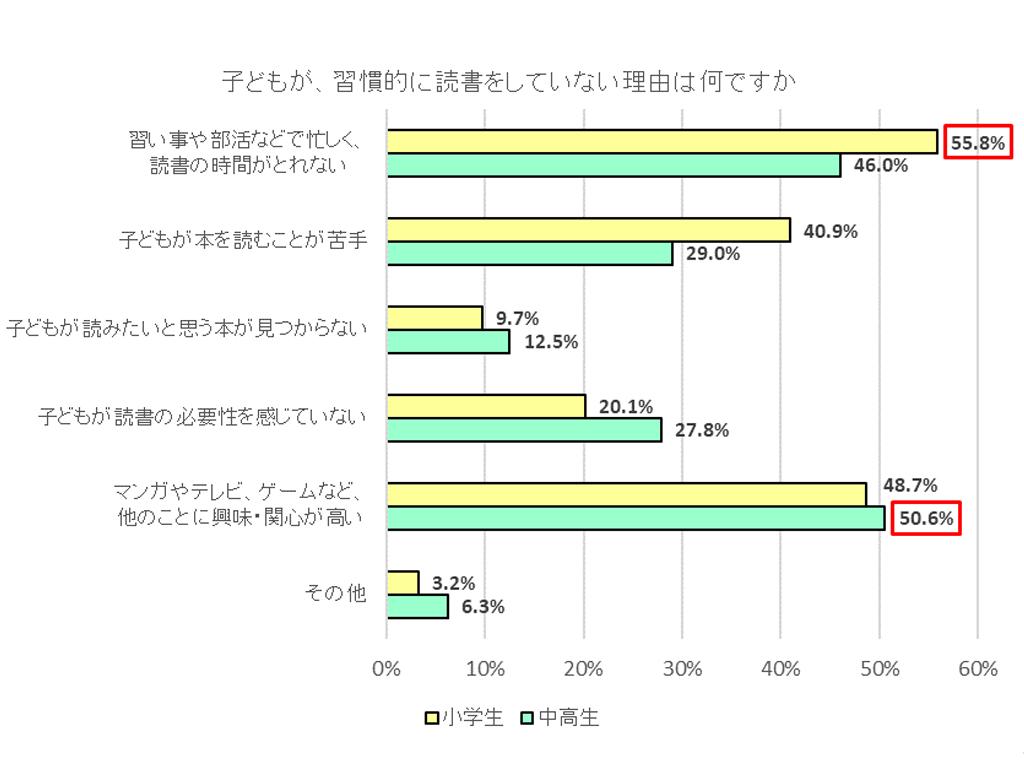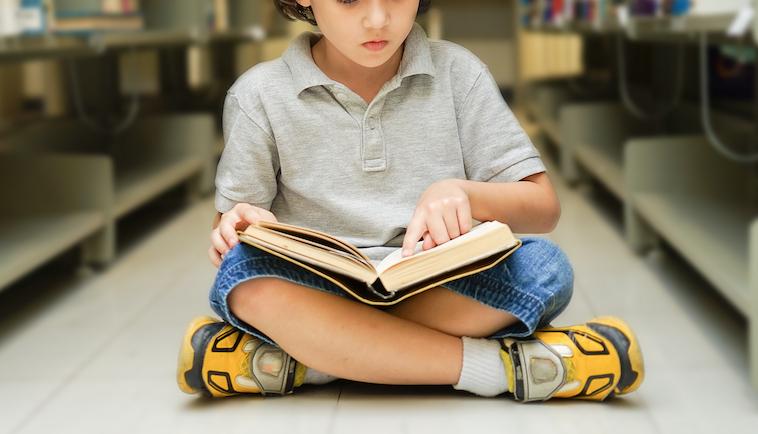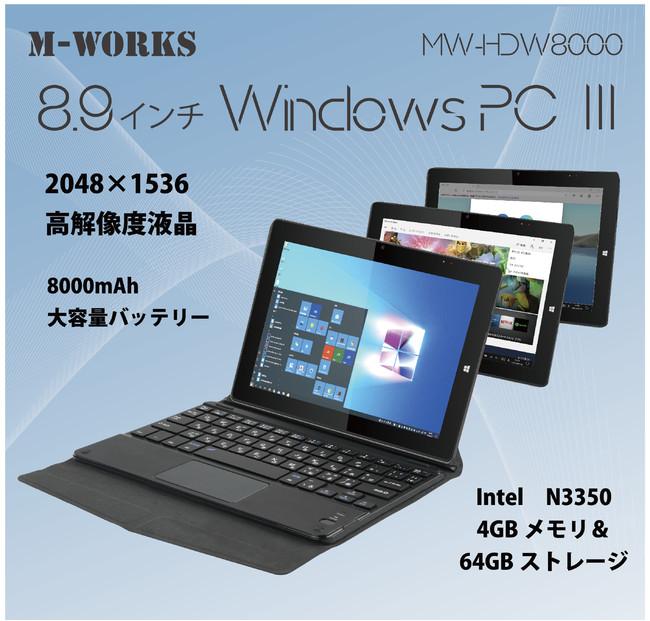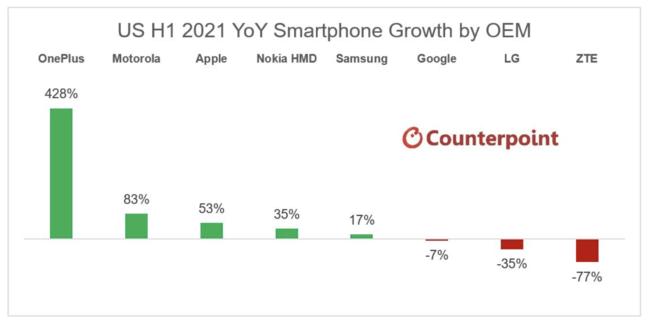Surprisingly many!? 60 % for elementary school students who are reading habitually and 50 % for junior and senior high school students
For reading, "paper" is the mainstream, but 10 % of junior and senior high school students are "smartphones"
In recent years, the separation of the child's type has become serious, but what is the specific reason?The Glory Seminar conducted a "survey on reading elementary, junior high and high school students" from January 12, 2022 (Wednesday) to January 26 (Wednesday), and 506 parents with first -year elementary school students with children in high school.I got a valid answer.
When asked if the child was reading it habitually, 59 of the parents of elementary school students.0 %, 46 of junior and senior high school parents.6 % answered that the child was "customary reading."In addition, when I asked a guardian who answered that he was reading habitually, he was the most "several times a week" for both elementary and high school parents and junior high school parents.There were many.
What is the reason that a child is not currently reading habitsly?
Next, I asked about why children who did not read habitually did.(N = 242 (of which 94 elementary school parents, 148 junior and senior high school parents), 510 answers, multiple answers (all applicable))
Both elementary school parents and junior and senior high school parents were most likely to be interested in other things, such as manga, TVs, games, and less than 50 %.
Many junior and senior high school students answered, "I started to have a smartphone and stopped reading."The increase in time to use smartphones seems to be one of the reasons why you stop reading habitually.
What is the opportunity for a child to take a book?
When I heard a parent that the child was a catalyst for a child, both elementary school parents and junior and senior high school parents were most likely to be "noticed in bookstores, libraries, and school library", especially., 61 for elementary school parents.I climbed 1 %.(N = 506 (of which 229 elementary school parents, 277 junior and senior high school parents), 1439 in total, multiple answers (all applicable))
In junior and senior high school students, "the original work of movies and dramas" seems to be one of the reasons to pick up books.

When do you read a book when your child reads a book?
When asked what means of reading the book, the most common was "read on paper media", 100 % for elementary school students, and 98 junior high school parents..I climbed 6 %.(N = 506 (of which 229 elementary school parents, 277 junior high school parents), total number of answers 586, multiple answers (all applicable))
In addition, about 10 % of junior and senior high school students answered "read on smartphones", and some elementary, junior high and high school students use tablet terminals 6..I found that I was 1 %.
What kind of book did you recommend to your child?
When I asked if I had recommended a book to my child so far, 93 of elementary school parents.9 %, 88 of junior and senior high school parents.4 % answered, "I have recommended."(N = 460 (of which 215 elementary school parents, junior and senior high school parents 245), total number of answers 1116, multiple answers (all applicable))
Next, we asked a parent who answered the child that he had recommended a book to what kind of book he recommended.Both elementary school parents and junior and senior high school parents were the most common books that seemed to be interested in children.In addition, more than 50 % of junior and senior high school parents were "books that parents read and found interesting."
What have a positive effect on your child by reading habitually?
I asked what kind of positive effects would have been made by a child.(N = 506 (of which 229 elementary school parents, 277 junior high school parents), total number of answers 2346, multiple answers (all applicable))
Both elementary school parents and junior and senior high school parents were the highest percentage of "increased vocabulary" was more than 70 %.In addition, more than 70 % of items such as "gaining new knowledge" and "improving reading skills" were more than 70 %.
Do children like reading?Do children like writing documents?
When asked parents if they thought they liked reading, 75 elementary school parents.5 %, 66 of junior and senior high school parents.4 % replied, "I think children like reading," "I think children like reading."(N = 506 (of which 229 elementary school parents, 277 junior high school parents), single answer method)
Similarly, when I asked if children thought they would like to write sentences, both elementary school parents and junior and senior high school parents said, "I think children like writing."I think I like writing, "said more than 40 % of parents.Next, I examined the relationship between reading and dislikes reading and dislikes writing.
About 70 % of parents who answered "I think children like reading" said, "I think children like writing sentences" "I think children like writing texts."Among the parents who answered, "I think children hate reading," 0 % said, "I think children like writing sentences."I think I like writing sentences. ".It was 0 %.
If a child likes reading, it is clear that writing a sentence is high, and if the child dislikes reading and writing, the percentage of dislikes writing tends to be higher.
Survey overview
Survey target: Glory monitor members with first -year elementary school students to third -year high school children (glory seminar, glory of individual visabizer, parents who go to university entrance examination navio) Survey method: Internet survey period: January 122222222222222222222222222(Wednesday) -Antawn number of respondents (Wednesday): 506 (229 elementary school parents (45).3 %), 277 junior and senior high school parents (54).7 %)
Configuration / INO.


![10th generation Core i5 equipped 9.5h drive mobile notebook is on sale at 50,000 yen level [Cool by Evo Book] 10th generation Core i5 equipped 9.5h drive mobile notebook is on sale at 50,000 yen level [Cool by Evo Book]](https://website-google-hk.oss-cn-hongkong.aliyuncs.com/drawing/article_results_9/2022/3/9/4a18d0792cae58836b71b9f591325261_0.jpeg)





![[Amazon time sale in progress! ] 64GB microSD card of 1,266 yen and wireless earphone with noise canceling function of 52% off, etc. [Amazon time sale in progress! ] 64GB microSD card of 1,266 yen and wireless earphone with noise canceling function of 52% off, etc.](https://website-google-hk.oss-cn-hongkong.aliyuncs.com/drawing/article_results_9/2022/3/9/c88341f90bab7fe3ce1dc78d8bd6b02d_0.jpeg)
